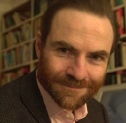Václav Havel is dead. All the talk about the man as activist, leader, the Czech Republic’s first democratically elected president, tends to overlook the playwright and writer, renowned in the Cold War for his 145 published prison letters to his wife, Letters to Olga.
So I turned to the only Havel book in my library, Living in Truth, a collection of 22 essays by and about him, published on the occasion of the award of the Erasmus Prize in 1986.
In “Prague – A Poem not Disappearing,” Timothy Garton Ash recalls that, during the 1980s, he was “determined to visit Václav Havel.” This is what he found:
“Havel is a short, stocky man with curly blond hair; his moustache and lower face remind me of a friendly walrus. … He is warm, intense, a concentration of nervous energy. …
He talks about the nervous strain of writing under these conditions, when at any moment the police might walk in and confiscate a year’s work. How he has crept out into the woods at night and buried parts of his typescript in the hole of a tree. How as a manuscript piles up he writes faster and faster: the fear of a house search concentrates the mind wonderfully. Far more effective than any publisher’s deadline. Just yesterday he was writing about this nervous tension. Then his wife came in and said ‘The police are outside again. I’m afraid they aren’t our usual ones.’ …
This is nothing compared with the conditions under which he wrote in prison. There he was not allowed to write at all, except for one letter a week to his wife – maximum four sides, and only about ‘personal matters’, as the prison regulations specify. This was his only opportunity to express himself as a writer, over a period of almost four years. If any part of a letter was unacceptable, the whole letter would be confiscated. The commandant of the prison camp at Hermanice took a sadistic delight in enforcing this instructions. … His particular delight was censoring the writer’s letters. Havel started writing a ‘cycle’ of letters about his philosophical views. He mentioned the ‘order of being’. ‘The only order you can write about’, declared the commandant, ‘is the prison order’. Then he decided Havel should not write about philosophy at all. ‘Only about yourself.’ So Havel designed another cycle of letters on the subject of his moods: sixteen of them, two to each letter, one good, one bad. And he numbered them. After eight, the commandant called him in: ‘Stop numbering your moods!’ ‘No foreign words!’ he ordered one week. ‘No underlining!’ the next. ‘No exclamation marks!!'”
A chapter earlier, Nobel writer Heinrich Böll, in “A Courtesy Towards God,” quotes Czech politician Jiří Dienstbier that “Václav Havel was a particular target for persecution.’ His overall manner of courtesy, of having been ‘well brought up’, gave the impression that he was ‘soft and easily broken’. It was seductive. ‘Those around him reacted all the more excitedly to Havel’s unyieldingness, to this “inaccessible systematist”, who even tidied up his prison cell in so precise and presentable a fashion that it could have served as the model for the graduates of an officers’ training school.'” Then Böll adds:
“Havel nevertheless managed, in spite of the censorship, to smuggle out a scale of his moods … he devotes himself at great length to the ‘dejectedness of Sunday’, to what he calls this ‘problem of civilization bearing the name Sunday’. These moods, in particular those on Sundays, are to him ‘the typical cracks through which nothingness finds its way to man, this modern face of the Devil’. He does not shrink from calling it by name. …
‘The global wonder of existence’, that peace of mind which ‘Christians call mercy’, was also allowed through. One would have had to be a censor in order to review these letters. Is not so much metaphysics more dangerous than many a direct message? The following resulted from a particularly beautiful moment in the prison yard: ‘The more beautiful the moment, the more distinct is the growth of the eerie question: What else? What more? What now? What next? What am I to do, and what will I achieve? I would describe this as the feeling of having arrived at a kind of end to the finite.'”
Tags: Heinrich Boll, Jiří Dienstbier, Timothy Garton Ash, Václav Havel





December 19th, 2011 at 9:08 am
Such a gracious man. Havel helped find a home for Radio Free Europe in Prague when the station had to leave Munich. Then as the Hoover Archives took on the responsibility and expense of preserving the radio recordings, he opened his elegant book-filled office in the castle for a reception to honor the Hoover overseers who were funding the initiative. I remember he had flutes of champagne passed around and gave a simple but heart-felt toast with a gentle and seemingly unrushed flourish. It actually only lasted a few moments, but the memory is permanent.
December 20th, 2011 at 12:13 am
Vaclav Havel is in this feature documentary http://www.fisheadmovie.com/ admittedly that’s more about his political background and his personal interpretation of it, more than about him as a writer.
December 21st, 2011 at 7:13 am
I would chose not to have his publisher’s deadline.
He will be missed. I hope we can learn from how he was a man. We need more examples like him.
Thanks for your post.